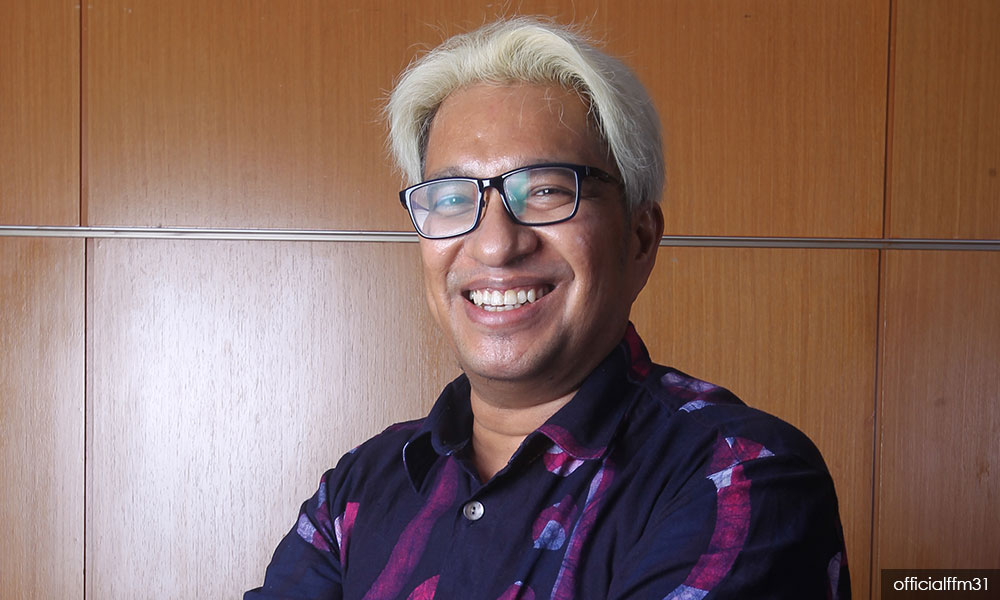Democracy is defined as a system of government by the people; a form of government in which the supreme power is vested in the people and exercised directly by them or by their elected agents under a free electoral system.
It sounds wonderful where people make their own decisions and govern themselves. It is a flat system where nobody has absolute power to tell you what to do.
Technically, we live in a democracy here in Malaysia. There are regular general and state elections where the people go out and vote for the political party and candidate that they want to administer the federal or state government.
They make choices depending on what these parties and candidates have to offer. If it is to their liking, they vote. If it is a mistake, they can vote again in the next election for a change.
Yes, I know. I can sense the rolling of the eyes of everyone out there reading this now. I’m not trying to simplify the political system of the country because I’m not about to write about democracy and our political environment.
Sometimes, I feel I need to take a break from it even though politics never takes a break. We have enough commentators to take over the shift.
Crowdfunding
There has been a rise in the democratic process in the media world. In the last year or so, crowdfunding has become a popular source for films to be made.
Recently, a crowdfunded film ‘Pendatang’ has just been announced by the filmmakers that it has been completed. Produced by Kuman Pictures, it is supposed to tell the story of racial segregation, a topic that probably isn’t very mainstream.
Amir Muhammad, the founder of Kuman Pictures, says that the reason they decided to go for the crowdfunding route is because the topic of the film might not be a very easy sell for mainstream production companies, broadcasters or funders.

So, they made it available for the public to decide if the film was worth enough to be made. The public spoke; they funded all RM300,000 of the budget and the film was done.
It hasn’t been released yet and Amir has announced that they will organise special screenings for the people who contributed first before being released on YouTube for all to enjoy.
My wife Sheril A Bustaman is one of those who contributed and I’m sure she is excitedly waiting for the invitation to watch the first fully crowdfunded feature film in Malaysia. I’m hoping that she gets a plus one!
There have been other film projects after ‘Pendatang’. There is the documentary film ‘Don’t Rock The Boat’ by Mogan Selvakannu about the sense of belonging among Malaysian Indians in the country.
This film has also successfully been crowdfunded, although, at RM16,000, it is a fraction of the budget that ‘Pendatang’ has and is now making the rounds in the film festival circuit.
As you can see, these films that have been successfully made through crowdfunding do not really have the typical action movie, romantic comedy or horror topics. Although it may have elements of action, comedy or even horror, the issues that these films explore are a little bit less mainstream. So, as mentioned, the typical funders might not greenlight the films.
If the films aren’t made, then the public would not be able to see stories that explore these issues. So instead of giving the decision-making authority to the few typical funders, the process is democratised and the people decide whether they want the films made or not. I guess it would mean that the filmmakers, just like elected representatives, now have a responsibility to the public.
Interesting.
Not something new
Crowdfunding for projects like these isn’t exactly something new. Book publishing companies like Fixi and Matahari (coincidentally or not, also founded by Amir) have crowdfunded books that they have published many times before, most commonly by preselling the titles before publishing.
Internationally, many films and art projects have been crowdfunded as well, and way before ‘Pendatang’ was ever made.
I mean, even YouTube and other social media platforms that have monetisation capabilities actually democratise the process of content-producing.

If producers on these platforms are able to make content that satisfies a certain segment of the public, they can probably garner enough support to continue what they want to do, albeit also realising that they now have a certain responsibility to uphold.
Even in journalism, we can see many independent journalists like Tim Pool, Philip DeFranco and others who sign on to platforms like Patreon that allow the public to support their work financially on a more regular basis.
It’s like signing up to be patrons and pledging a monthly contribution to these journalists. And again, this isn’t new. News organisations have been accepting donations for a long time now.
I realise that crowdfunding and the democratisation of content aren’t exactly new. We all know about it. But I guess the reason I am writing about it now is because I think that it is still cool when filmmakers, writers and journalists make use of this democratic element to tell interesting stories that the public actually sees as worthy and wants to consume.
If anything, this is probably one element of democracy that actually can give us some hope. So I’m suggesting that you should all look out for a project you feel that is worthy of your support and support it.
You don’t need to contribute a lot to make a project happen. You just need a lot of people contributing. It’s like an election. Every vote counts, but the voter turnout needs to be high for any real impact. - Mkini
ZAN AZLEE is a writer, documentary film-maker, journalist and academic. The Sheraton Move really frustrated him but maybe after November 2022, he can start feeling better again. Visit fatbidin.com to view his work.
The views expressed here are those of the author/contributor and do not necessarily represent the views of MMKtT

No comments:
Post a Comment
Note: Only a member of this blog may post a comment.